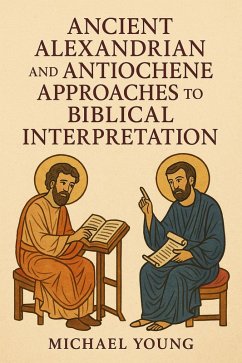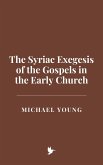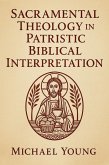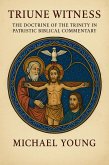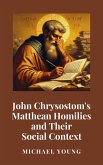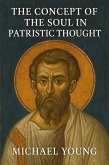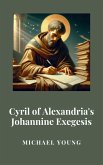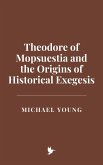The Alexandrian school, known for its spiritual and allegorical readings of the Bible, emphasized the unity of Christ's divine and human natures, interpreting the Scriptures through a philosophical lens, particularly influenced by Platonism. Key figures like Origen, Clement, and Athanasius are explored in their roles in this approach, demonstrating how allegory became a central tool for uncovering deeper spiritual meanings within the text.
In contrast, the Antiochene school, with its focus on the literal and historical context of Scripture, emphasized the distinct natures of Christ, advocating for a more grounded and literal interpretation of biblical texts. The book analyzes the works of Antiochene scholars such as Diodore of Tarsus, Theodore of Mopsuestia, and John Chrysostom, highlighting their insistence on the historical integrity of Scripture and their contributions to early Christian doctrine.
Through a careful comparison of these two schools, the book provides a rich analysis of how their differing methods of exegesis influenced the development of Christian theology, from the Nicene Creed to the establishment of orthodox Christology. It also illuminates the broader impact of these interpretative approaches on later theological debates and their legacy in shaping Christian biblical interpretation through the Middle Ages and beyond.
Dieser Download kann aus rechtlichen Gründen nur mit Rechnungsadresse in A, B, CY, CZ, D, DK, EW, E, FIN, F, GR, H, IRL, I, LT, L, LR, M, NL, PL, P, R, S, SLO, SK ausgeliefert werden.

